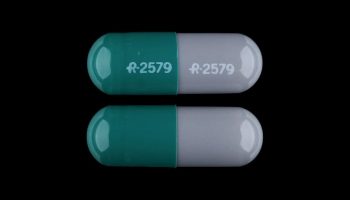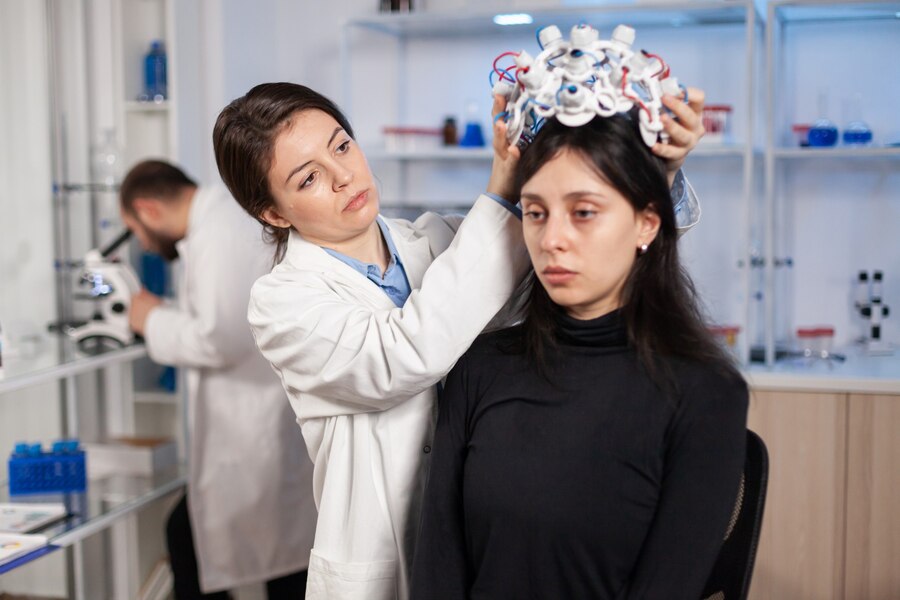When it comes to treating depression, transcranial magnetic stimulation, or TMS, has gained traction.For individuals who have not seen relief from conventional techniques such as medication or therapy, its non-invasive nature and comparatively low side effects have rendered it an attractive option.
Like every medical process, there are doubts and worries regarding its efficacy as well as possible hazards. We will address the query that frequently crosses the minds of those thinking about TMS in this article: Can TMS make depression worse in some situations?
Understanding TMS Therapy
Before delving into the concerns, let’s briefly understand what TMS therapy entails. TMS is a non-invasive procedure that uses magnetic fields that create stimulation on the specific regions of the brain associated with mood regulation. During a TMS session, a specialized device is placed on the scalp of the patient, and the device delivers magnetic pulses to the diverse brain areas.
The treatment is generally safe and well-tolerated, with minimal side effects such as mild headache or scalp discomfort. Patients can return to their daily activities immediately after a TMS session, making it a convenient option for many.
How TMS Can Treat Depression:
- Targeting the Brain’s Activity: TMS specifically targets areas of the brain thought to be involved in mood regulation. The prefrontal cortex, which is underactive in people with depression, is often the focus.
- Neuronal Activation: The delivery of magnetic pulses during TMS sessions passes through the skull and stimulates the neurons in the targeted brain region. This can help to activate the areas that have decreased activity due to depression.
- Neuroplasticity: Over time, TMS induces neuroplastic changes, which means that it can help the brain to form new neural connections. This may contribute to symptoms of depression.
- Sessions and Duration: A typical TMS treatment course consists of multiple sessions. They can last around 30 to 60 minutes, over a period of four to six weeks.
- Non-systemic and Non-pharmacological: Unlike medication, TMS localizes itself to a specific part of the brain and does not have systemic effects, which means it doesn’t circulate in the bloodstream and affects the whole body.
- Side Effects and Safety: The toleration levels of TMS are good. Some people may experience mild side effects, such as headache or scalp discomfort at the site of stimulation. It is considered safe, and the risk of seizures is very low.
- Evidence and Efficacy: Several clinical trials have demonstrated the effectiveness of TMS in treating depression, particularly for individuals who have not responded to medications.
- FDA Approval: TMS was approved by the U.S. Food and Drug Administration (FDA) in 2008 for the treatment of major depressive disorder.
- Combination with Other Treatments: TMS can be used in conjunction with other depression treatments, such as medications and psychotherapy, which may enhance its benefits.
The Benefits Of TMS Therapy
Transcranial Magnetic Stimulation (TMS) therapy offers hope for those battling depression with its unique advantages:
- Non-Invasive: TMS is non-invasive, requiring no surgery or implants.
- Minimal Side Effects: Side effects are mild and short-lived, with only minor discomfort.
- Precise Stimulation: TMS targets mood-regulating brain regions, promoting neuroplasticity.
- No Systemic Medications: TMS doesn’t involve systemic medications, reducing side effect risks.
- Quick Recovery: Patients can resume daily activities immediately after sessions.
- Proven Efficacy: Backed by scientific research, TMS has displayed effectiveness in treating depression.
- Personalized Plans: Customized treatment plans cater to individual needs.
- Long-Lasting Effects: Some patients experience sustained improvements beyond treatment.
Can TMS Make Depression Worse?
Now, let’s address the primary concern: can TMS make depression worse in certain cases? To answer this question, it’s essential to consider a few key factors:
Patient Selection
TMS therapy suits an individual who does not respond to conventional treatments like antidepressant medications or psychotherapy. Proper patient selection is crucial to ensure that TMS is the right choice. If a patient does not meet the criteria or has certain medical conditions, TMS may not be suitable, and it could potentially worsen their depression.
Individual Response:
Like any medical treatment, individual responses to TMS can vary. While many patients experience significant improvements in their depressive symptoms, some may not respond as effectively. In rare cases, a patient’s depression may appear to worsen during the early stages of treatment before eventually improving. This can be attributed to the brain’s adjustment to the stimulation.
Adherence To Treatment Plan:
Consistency in following the prescribed treatment plan is essential for TMS therapy to be effective. Skipping sessions or not completing the recommended course of treatment can impact its success. In such cases, depression may not improve or could potentially worsen.
Communication With Healthcare Providers:
Effective communication between patients and their healthcare providers is paramount. If a patient experiences any unusual or adverse effects during TMS therapy, it is essential to inform their medical team promptly. Adjustments to the treatment plan can be made to address concerns and ensure the patient’s safety and well-being.
Underlying Factors:
Depression is a complex condition often influenced by various factors, including genetics, life events, and coexisting mental health disorders. TMS may not be a standalone solution for individuals with multiple underlying issues. In such cases, a comprehensive treatment plan that may include therapy and medication might be more appropriate.
Conclusion
In conclusion, while TMS therapy is generally safe and effective for many individuals coping with depression, concerns about its potential to make depression worse in certain cases should not be dismissed. The key to a successful TMS treatment lies in careful patient selection, adherence to the treatment plan, open communication with healthcare providers, and a thorough understanding of the individual’s unique circumstances.
It is essential for anyone considering TMS therapy to consult with a qualified healthcare professional who can assess their suitability for the treatment and provide personalized guidance. TMS can be a valuable tool in the battle against depression, but like any medical intervention, it must be approached with caution, transparency, and a focus on the individual’s specific needs and circumstances.
Read Also:




























